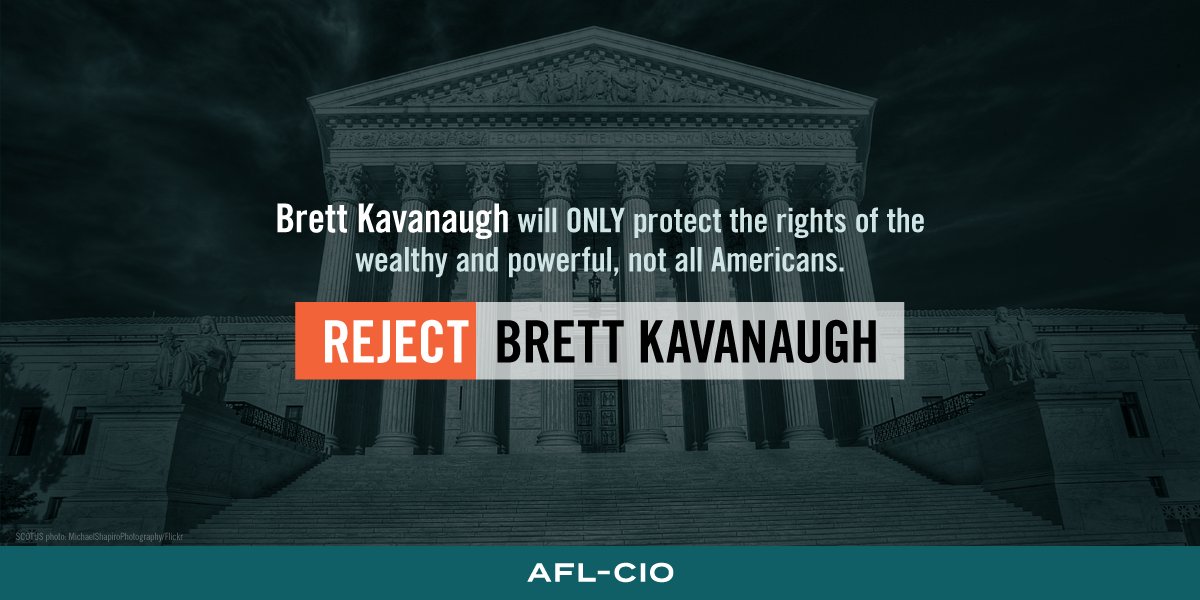

Share
The response to President Trump’s latest Supreme Court pick has been resounding. Rewire reports that protests broke out late into the evening after Trump’s 9 pm announcement.
Overnight unions began articulating their response. The national AFL-CIO put it succinctly.
Judge Kavanaugh routinely rules against working families, regularly rejects employees’ right to receive employer-provided health care, too often sides with employers in denying employees relief from discrimination in the workplace and promotes overturning well-established U.S. Supreme Court precedent.
A press statement from the Communication Workers of America evidences Kavanaugh’s anti-worker bias. CWA explains that Kavanaugh issued a partial dissent in a case involving more than 300 NABET-CWA technicians at CNN who lost their jobs and union protections in a suspicious reorganization scheme. In the case, Kavanaugh concluded that CNN was not liable for violations of the National Labor Relations Act and should not have to pay back wages. He also sided with AT&T in preventing CWA members in Connecticut who interact with customers or work in public from wearing union shirts in protest of the companies anti-worker practice.
More broadly, Politico pointed out that, “Kavanaugh wrote a 2016 opinion saying employers can require workers to waive their right to picket in arbitration agreements.” They also point out his support of school vouchers and a willingness to minimize the distinction between church and state. Regarding immigrant workers, Politico also points out that Kavanaugh has been praised by nativists. In particular, “he argued that a union election was void because undocumented immigrants had voted in it and “tainted” the result.”
Matt Schlapp’s glowing review of Kavanaugh’s judicial record of an Op-ed in The Hill is revealing. Schlapp is the chairman of American Conservative Union, the oldest conservative organization in the United States, and a stalwart and early supporter of Trump. From 2005-8 he was the executive eirector of federal affairs for Koch Industries.
Schlapp writes,
There are many examples of Kavanaugh’s willingness to take a stand. In a major Second Amendment case, he dissented from a decision that upheld a ban on semi-automatic rifles. (Justice Thomas has repeatedly cited that opinion in his own writings.) Kavanaugh struck down campaign spending limits on non-profits. He dissented from a decision that upheld the ObamaCare contraceptive mandate. He explained that public prayer at official government ceremonies is constitutional. And he sided with the Trump administration in a high-profile abortion case, dissenting from what he called a “radical” majority opinion that invented “a new right for unlawful immigrant minors in U.S. government detention to obtain immediate abortion on demand.”
One could go on. But the point is clear: Judge Kavanaugh’s demonstrated record of bold constitutional conservatism means we don’t have to be told or to take on faith how he will make determinations. His more than 300 written opinions reveal his trust in the words of the Constitution and its application to government actions.
The consequences of the appointment of Kavanaugh would have far-reaching consequences for all of us.

